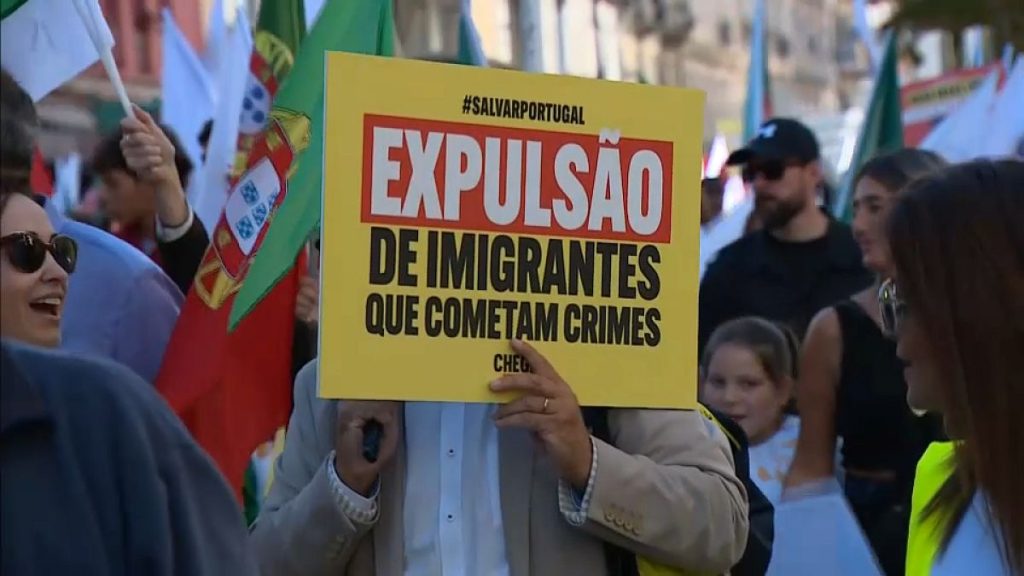Thousands of people in Portugal recently protested against what they called ‘uncontrolled immigration’ during a rally organized by the far-right CHEGA party. The protestors, marching through the capital Lisbon with the Portuguese national flag, carried banners advocating for the expulsion of immigrants who commit crimes. These sentiments were fueled by concerns about insecurity and a lack of affordable housing, which many attributed to immigration. Immigration was also a point of concern for CHEGA party leader André Ventura, who stated that while those who come to Portugal to work and contribute are welcome, the country must address the challenges of housing shortages and uncontrolled entries that contribute to insecurity and tensions.
One lawmaker for CHEGA, Portugal’s third-largest political force, expressed concerns that European countries were struggling to control entries, leading to a feeling of insecurity as unscreened arrivals sometimes faced difficult living situations that could lead to criminal activity. As tensions rose during the march, some clashes occurred in working-class neighborhoods with significant immigrant populations. These incidents highlighted the divide between those advocating for tighter immigration controls and those supporting a more open approach to immigration. Posters reading “No Portugal without immigrants” were seen along the route of the march, emphasizing the importance of immigrants to the fabric of the country.
The number of foreigners living in Portugal increased significantly by over 33% last year, reaching more than one million individuals, which represents about one-tenth of the total population. This surge in foreign residents has raised concerns about the strain on resources and infrastructure, particularly in terms of housing availability. In response to these challenges, the centre-right governing coalition implemented stricter migration policies, including the removal of a measure that allowed immigrants to apply for regularization after one year of illegal residence if they could prove employment. These changes reflect the growing debate around immigration in Portugal and the need to balance the benefits of a multicultural society with the challenges it presents.
The protests and discussions around immigration in Portugal reflect broader trends in European countries, where issues related to migration, integration, and security continue to be significant factors in political debates. As the number of immigrants in Portugal and other European nations grows, questions about housing, social welfare, and public safety become increasingly pressing. Finding solutions to these challenges requires a nuanced and balanced approach that considers the contributions of immigrants to society while also addressing the legitimate concerns of local populations. Ultimately, the march in Lisbon and the subsequent discussions highlight the complex and multifaceted nature of the immigration debate in Europe.
Overall, the recent protests in Portugal against ‘uncontrolled immigration’ shine a light on the complexities and tensions surrounding this issue in the country. The demonstrations organized by the far-right CHEGA party brought attention to concerns about insecurity, housing shortages, and the perceived impact of immigrants on the social fabric of Portugal. While some advocates for stricter immigration controls called for the expulsion of immigrants who commit crimes, others emphasized the positive contributions that immigrants make to society. As Portugal grapples with these challenges, finding a path forward that balances the needs of all stakeholders is essential to creating a cohesive and inclusive society. The recent protests are a reminder of the importance of open dialogue, understanding, and cooperation in addressing the multifaceted issue of immigration in Portugal and beyond.


